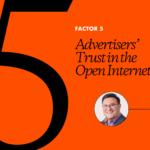Social media platforms (Twitter, particularly) have become the central nervous system of the news cycle. As such, to be successful, journalists are increasingly required to behave as online personalities striving to build and maintain an audience.
You’ve seen it. Journalists today need to quickly weigh in on trending topics, live-tweet their event coverage, and reply to their readers—all without an editor by their side.
This trend has been increasingly clear over the past decade, but recently – amid growing concerns of bias in the news media – newsrooms have started cracking down on what their reporters share on social. As a recent New York Times’ column observed, newsrooms can’t afford to employ journalists who air their biases publicly online. The risk to their own credibility as unbiased news institutions is simply too great.
Twitter, and social media in general, present plenty of other ways that journalists can get into trouble, too. Tweets can spin out of control quickly, get taken out of context, and gain unwanted attention. In this environment, decades-old tweets can come to light and end careers.
So, should journalists take an oath of silence online? That’s just unrealistic—it’s common knowledge that journalists need social media to build trust and grow their readership.
But this focus on social media, including Twitter, is only part of the equation.
There is another place where journalists can make and maintain those important connections: via interactions with the community on their publisher’s website.
Journalists should stay active in both environments as part of their overall “content strategy.” Twitter, in this approach, is best for growth and exposure to new audiences—the publisher’s community is best for deeper conversations and lasting connections.
There are two major reasons that journalists will want to consider this route.
Reason #1: There’s Less Risk in the Community
A publisher’s site is not the entire Twitterverse! In this environment, it’s less likely that a problematic comment can take on a life of its own. There is more accountability here: while journalists represent their publisher no matter where they choose to express themselves online, that is far more clear when that interaction is in a publisher’s community, where journalists’ comments can be labeled with a ‘journalist’ or ‘reporter’ badge. Everyone in the conversation is easily identifiable, which isn’t the case on Twitter.
Because the comments are rooted in the journalist’s work, conversations tend to be more focused. Additionally, the overall quality of conversations is higher in a publisher’s community, as publishers can set their own standards for moderation.
Reason #2: Deeper Journalist-Community Relationships Helps Both Journalists and Publishers
At OpenWeb, we know that when users are actively commenting, they view 4 times more pages on a publisher’s website than casual visitors. And we know that an excellent way to drive that engagement is through a journalist-led Live Blog, AMA, Community Question, or by simply allowing journalists to discuss topics in the comments with community members. Once a reader is registered, the journalist and publisher can bypass social media all together using first-party data to surface content with personalized recommendations.
A journalists’ interactions in the community will spark a virtuous circle. The journalist can build more affinity with their audience, and both the publisher and journalist gain more return readers and registered users. In turn, publishers see lifts in key indicators like pages per session and time spent, and the journalist fosters deeper engagement with their readers.
There will always be instances in which a journalist’s voice clashes with their publisher’s, no matter where the commentary happens. And while Twitter will likely remain the center of the news universe for the foreseeable future, journalists and publishers alike should know that it’s not the only place where they can reach their readers.
By staying active on both Twitter and within the publisher’s Community, journalists can grow their readership, join meaningful conversations, and create even more value.


